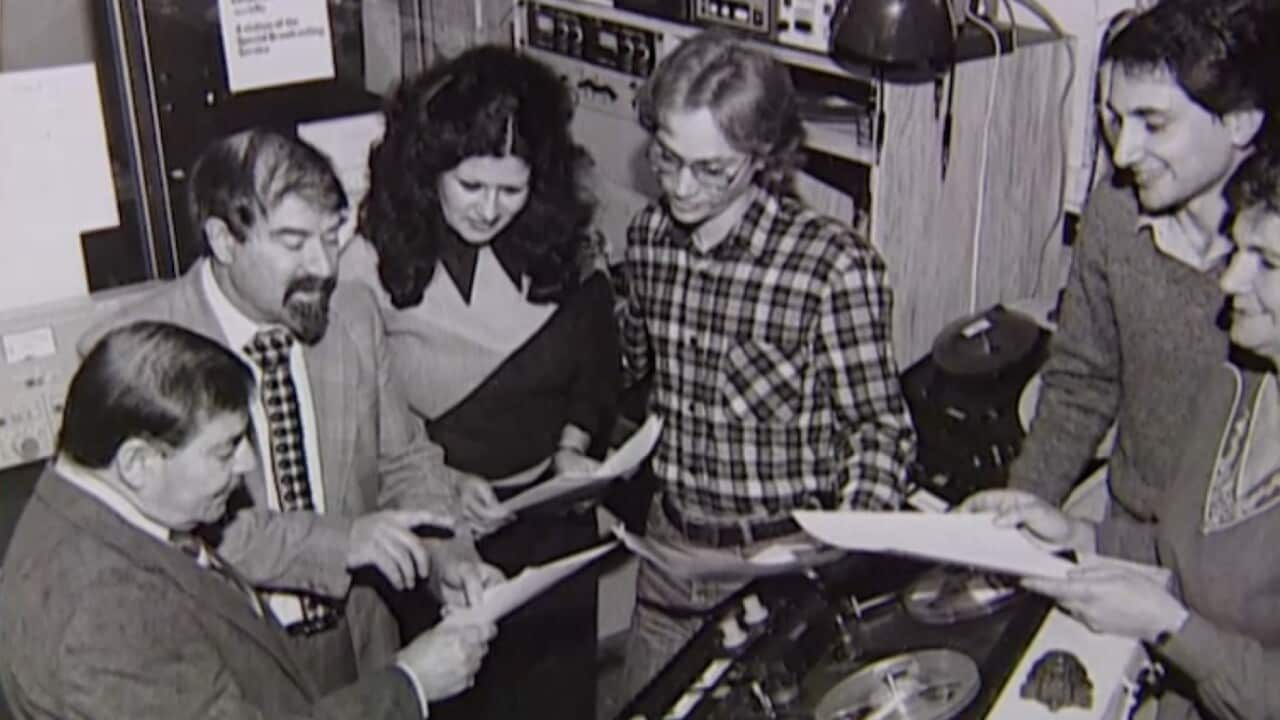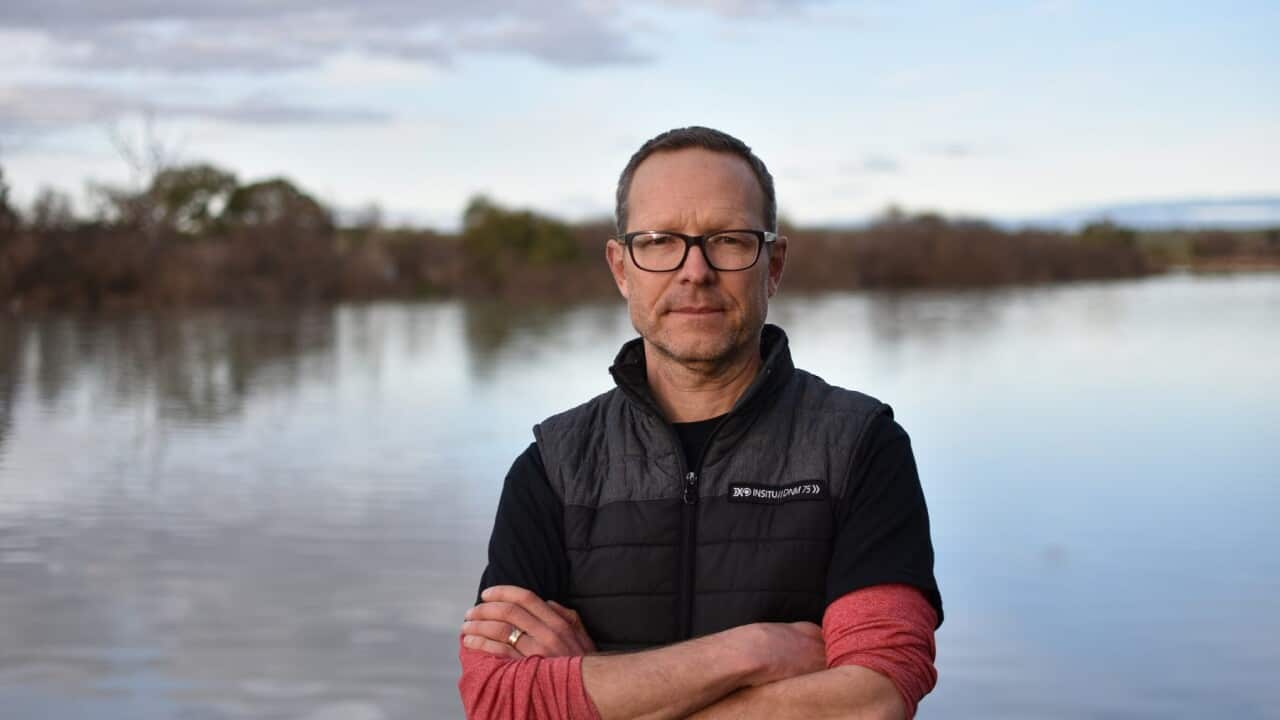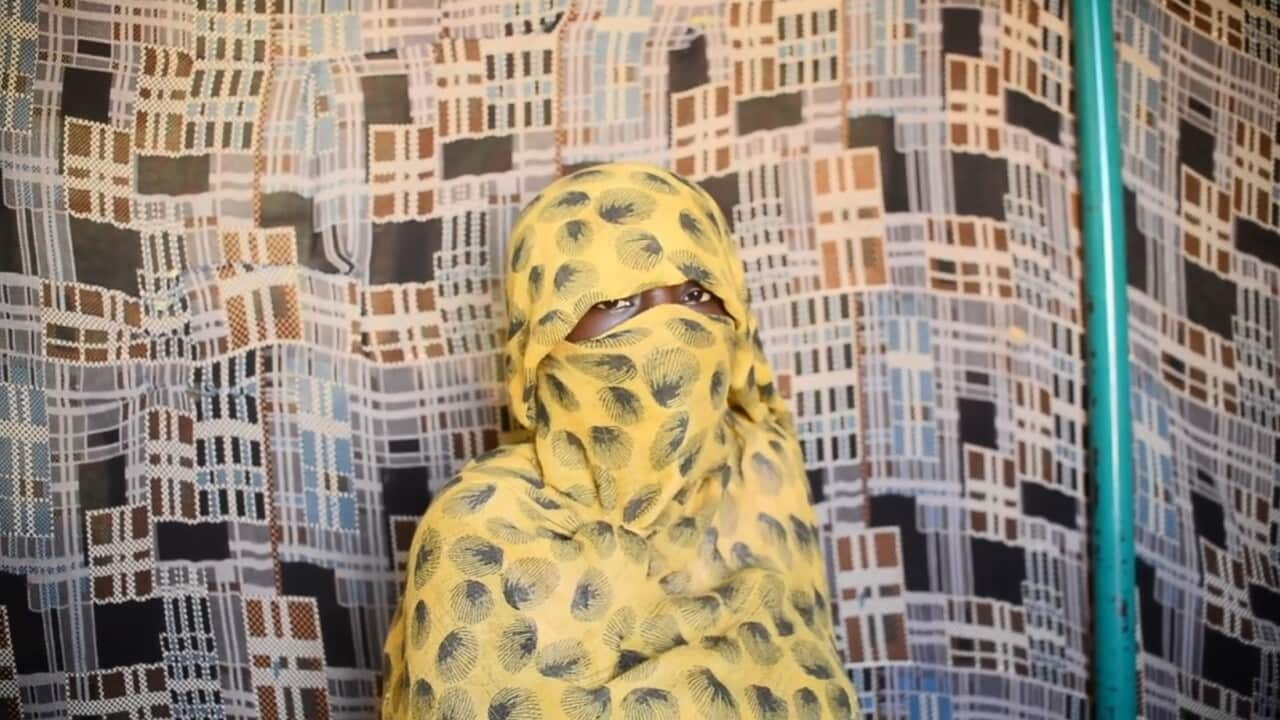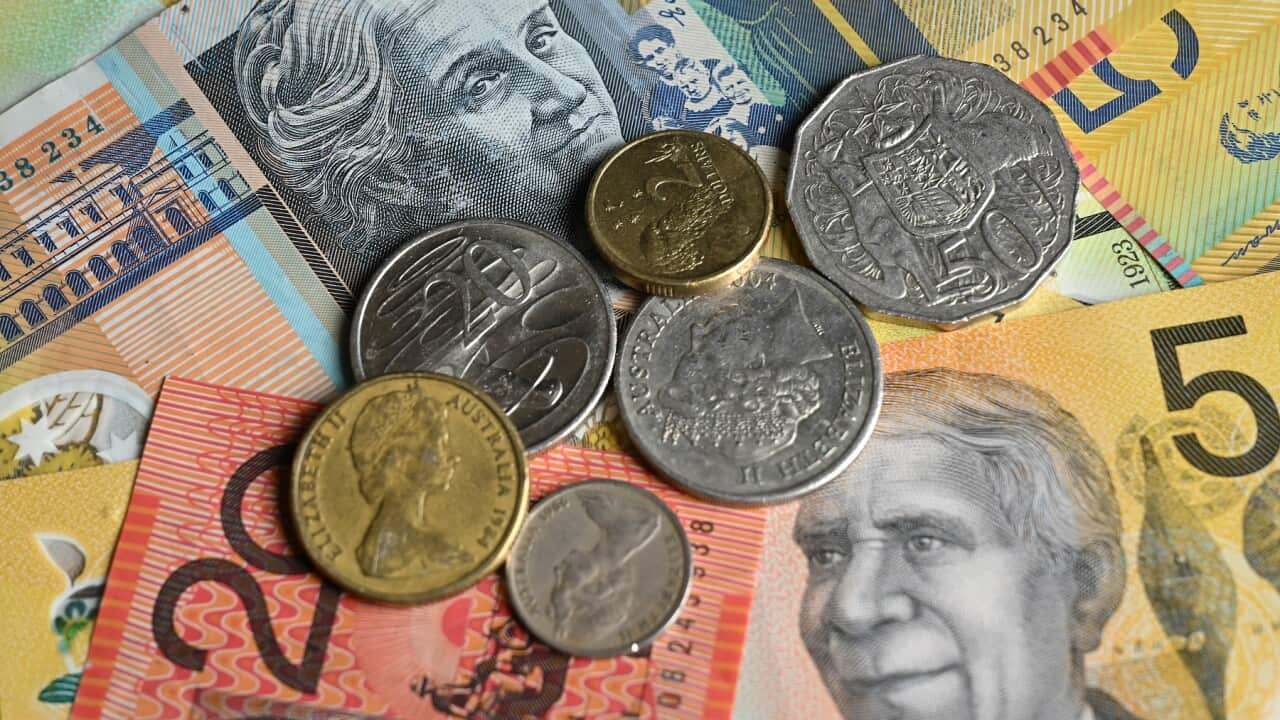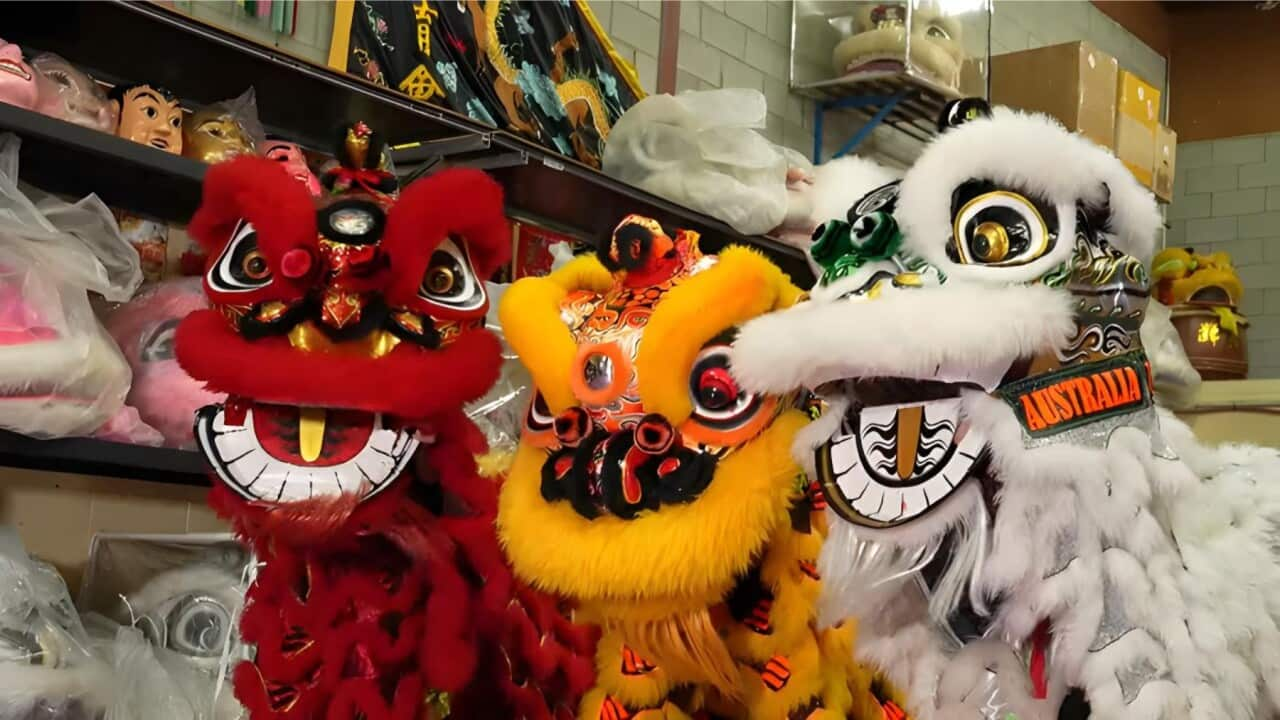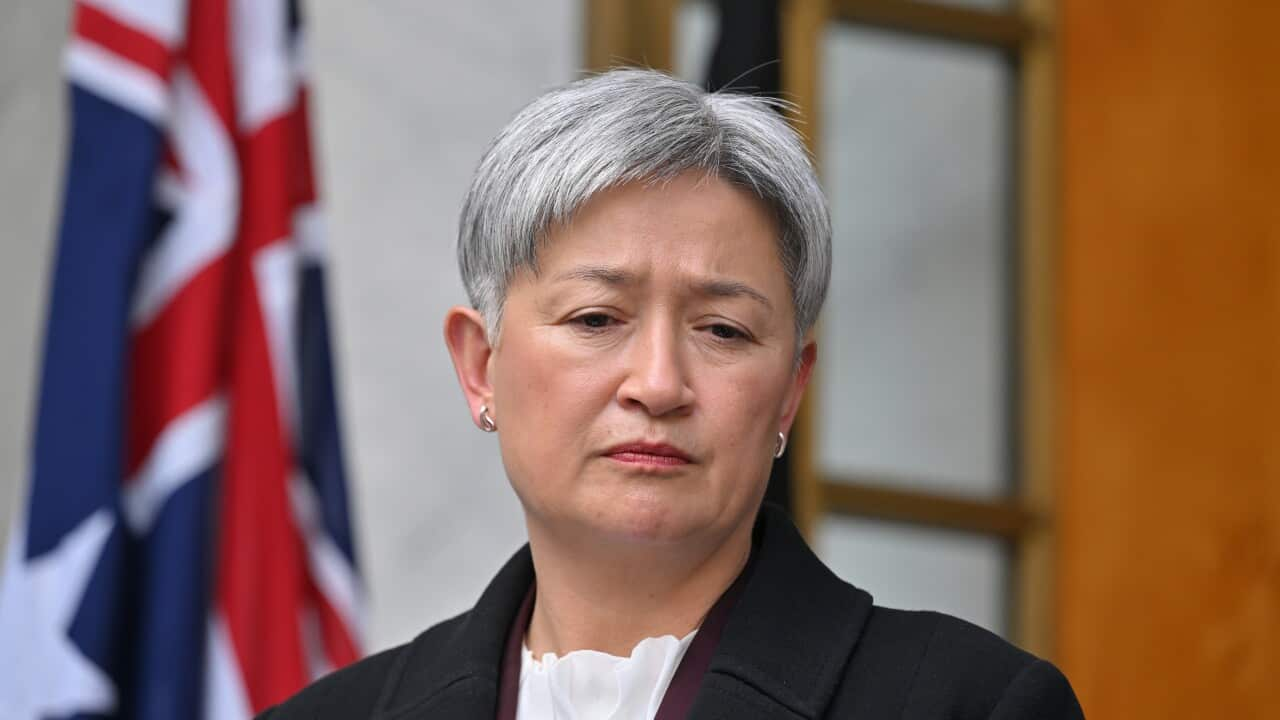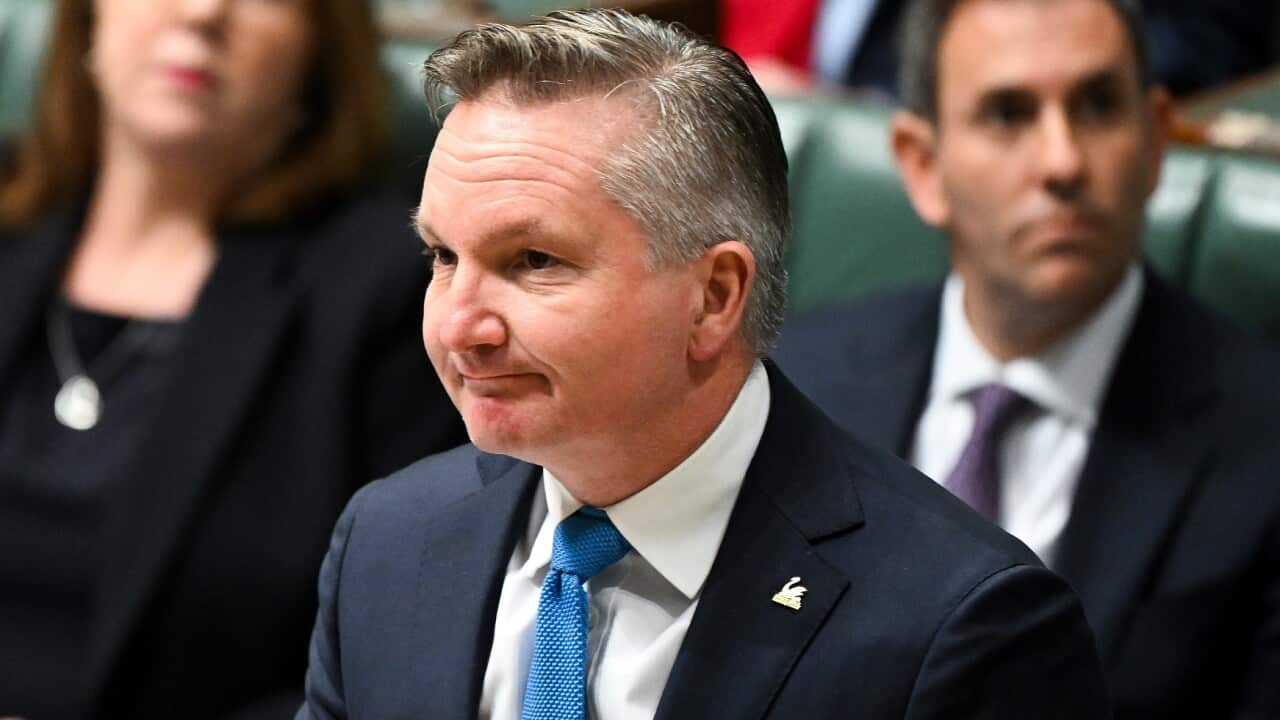Listen to Australian and world news, and follow trending topics with SBS News Podcasts.
Produced in collaboration with SBS Vietnamese, Khmer and Tetum.
TRANSCRIPT
(Music)
Whichever way you look at it, 50 is a milestone birthday.
And it's one SBS - the Special Broadcasting Service - is celebrating in 2025.
It all began back in 1975.
Before SBS emerged on television and digital platforms, it was a radio station.
On June the 9th, 1975, former immigration minister Al Grassby [[graz-bee]] launched Radio Ethnic Australia with the aim of explaining the new Medibank scheme to migrant groups in different languages.
"This is Al Grassby on behalf of the Australian Community Relations Office welcoming you all to Radio 2EA. The voice of ethnic Australia. Today the program is in Greek." A Greek translation of the above words follows.
Broadcasting began in seven languages in Sydney on 2EA, and eight on Melbourne's 3EA, with the first broadcast as you just heard in Greek.
SBS, as it's now known, emerged just two years after the country abolished the Immigration Restriction Act - mostly known as the White Australia Policy.
Cultural historian and Emeritus Professor Ien Ang from the University of Western Sydney authored "The SBS Story" published in 2008.
She says the abolition of the policy was a turning point for Australia.
"That was the early 1970s when finally the White Australia policy was officially abolished and that made it possible for migrants to come into Australia irrespective of racial categories. So before that, of course there was this assumption that only people who were white could come into Australia after the abolition of the White Australia policy migrants came into Australia from all over the world, and especially from Asian countries. But also from the Middle East and much later from Africa and so forth."
The policy dated back to Federation coming into law in 1901.
At its core it was about excluding non-European immigrants from Australia and it took more than 70 years for the policy to be officially scrapped.
That happened in 1973 when the final remnants of the policy were removed.
It was a time of great change in Australia - racial barriers of all kinds were being broken.
And it had only been a couple years since Indigenous Australians were recognised as citizens in a 1967 referendum.
This is Australian civil rights activist Faith Bandler speaking ahead of the 1967 referendum to Channel 7.
"I don't think that we should take it for granted that there will be a yes vote for the Aborigine. And I feel that the time has come that Australia can no longer tolerate legal discrimination against its Indigenous people."
1975 also saw the largest constitutional crisis ever to grip the nation.
"Well may we say God save the Queen because nothing will save the Governor-General (cheers)."
That's former Prime Minister Gough Whitlam whose government was dismissed in 1975, the first and only Australian government to ever be dismissed by the Governor-General.
One of the legacies of the Whitlam government is that it was the first to refer to Australia as a multicultural nation.
The Opposition at the time had also made speeches about multiculturalism.
Malcolm Frazer's Liberal government, which took power in 1975, opened the door for refugees fleeing the Vietnam war to come to Australia.
Jock Collins, who was a Professor of Social Economics at the University of Technology for 45 years, says this marked a cultural shift in Australia' s refugee intake program.
"The Fraser government at the time was very open to the boat people and to refugees in contrast maybe to some of the political parties today. And that was the beginning of a massive change because up till that time, the government in 47 promised nine out of 10 immigrants to Australia would be Britain and British. That didn't happen. And we had to take in refugees from displaced people from Eastern Europe and southern Europeans to keep the numbers up. We could never attract as many Brits as we wanted, but until that moment we really weren't getting any Asian or coloured immigrants. And of course, 75 with the Vietnamese boat people today jumped very quickly forward. The largest immigrant intakes are Indian and Chinese immigrants who of course were blocked because of the white Australian policy then. So really there's been a dramatic change since the mid seventies in the Australian immigration history and story."
In 1977, the Vietnamese community got their first radio program on SBS.
Nicky Chung's parents fled the Vietnam war in the 1970s - making Australia home.
She says when her family arrived after the war, SBS was a vital source of information.
"I can really talk from personal experience there because our family came over in 1979 after the fall of Saigon, and we were connected with SBS media as soon as we were here, really very shortly after. I know that from a personal experience in our family, we used to watch the news every night. When I spoke with my parents about our experience with SBS, it was very much about being able to have a very trusted media source too. The reality was that when we first arrived, we really wanted to understand the culture here in Australia very quickly. We still, though, wanted to stay connected to what was happening around the world, including Vietnam."
Ms Chung is now the CEO of the Australian Vietnamese Women's Association.
Fifty years since the fall of Saigon she says her dad still listens to the Vietnamese program.
"My dad says, he still goes for his morning walks and he has said to me, he streams SBS from the app to listen to good news where his words and good items to keep abreast of what's happening around Australia, around other world."
The 1970s were also a time when Australia started to question the policy of assimilation - the idea that migrants had to become Australian as quickly as possible - whatever that meant.
But it wasn't as if multiculturalism was anything new in Australia.
For around 65,000 years Aboriginal and Torres Strait Islander peoples have lived here making up of more than 250 language and tribal groups.
And today SBS's NITV provides Indigenous content for Australian audiences.
Historically, Dr Professor Ang says almost every society has had multiple cultural influences, whether through, trade, colonisation or other means.
"When you think of diverse societies, how successful they are, not just in recent times, but historically I think it's quite clear that openness to diversity is in a way an important driver for much more dynamic cross-cultural influences that then become creative forces in society."
1975 also saw the Khmer Rouge regime take power in Cambodia under the rule of Pol Pot.
At least 1.5 million Cambodians died from starvation, forced labour or execution under the regime that became known as the killing fields.
Here's a report from the ABC at the time.
"The Khmer Rouge leaders planned to remould Cambodia into a rural Communist utopia and would spare not life to do it."
This saw a wave of refugees and immigrants arrive in Australia from Cambodia.
The first significant wave occurred after the late 1970s.
Before then many Cambodians spent years in refugee camps in neighbouring countries such as Thailand before relocating to Australia.
For Phiny Ung 1975 was a significant year - for all the wrong reasons.
It was the year she and her family were forced to flee Cambodia to save their lives.
"Every year for me 17th of April, It's a really significant day that I become numb. I try, not that I try to forget, but I do not want to think about it, but it's always there. So I knew it is anniversary of that time no matter where I go and no different for this year. And I try to keep quiet and think back of that time, it just like yesterday, 50 years, but it was just like yesterday. It was a lot. Or we do remember that we have to leave the city by force."
The growing Khmer-speaking community from Cambodia saw the introduction of the first Khmer program on SBS Radio back in 1979.
At around the same time colour TV was quickly becoming common in many Australian households.
By 1980 SBS took its next big step forward launching a television channel for the very first time.
"Television will never be the same again because of us. Good evening. Welcome to the first edition of your Dateline. I'm Mike Carey. I'm Jana Wendt. Good day. Welcome."
The new TV station offered world news, documentaries and international movies, cementing its place on the Australian media landscape.
On the ground Australia was rapidly evolving into the multilingual nation we see today.
More migrants and refugees arrived from Asia and the Middle East.
In particular the civil war in Lebanon which started in 1975 and ended 15 years later, saw the growth of this community in Australia.
Arabic was introduced into the SBS Radio fold - which has now expanded into a 24-hour digital audio channel.
(An excerpt from the Arabic program)
In politics the Labor government of Bob Hawke elected in 1983 brought in a new era of multicultural and immigration policy
Since then multiculturalism has evolved beyond a philosophy and is now a reality in modern Australian.
Professor Jock Collins again.
"I think multiculturalism had its peaks and troughs. It probably grew to a peak under the Keating Hawke- Labor government where multicultural was really championed by those governments and by the head of FECCA, the Federation of Ethnic Communities Council was a very powerful ear in government policy and consulting since that time, various have sort of lost some enthusiasm for it. It still remains an official type of policy."
Meanwhile, SBS was increasingly the place to go for fans of football or soccer encouraged by the National Soccer League launched in 1977.
(Commentator: "Good evening, welcome to World Soccer.")
By the mid 1990s more languages were introduced into the SBS radio schedule and a thing called the internet began to go mainstream.
This marked the start of a revolution in how people now consume media.
Mobile phones are now a one stop listening and viewing shop for most Australians.
The shift from a community service in 1975 to a digital streaming powerhouse has been a successful one for SBS.
Managing director of SBS James Taylor says SBS is also about providing value for Australian taxpayers who partly fund the broadcaster.
"We've got the highest volumes of multilingual content than ever before in our history. And in 60 languages. We're also being acknowledged across a number of other fronts. We've got the Australian streaming platform through SBS On Demand, and we are the podcaster of the year, three years in a row. These are all things to really be celebrated. We're a public good, we are in part funded by the public, and it's really important for us to be delivering more and more value each year to Australians."
And one of those 60 languages is Tetum, introduced in 2023.
Tetum is a language spoken on the island of Timor, which saw a big wave of migration to Australia in the wake of civil unrest and the Indonesian invasion in 1975.
Fleeing conflict, the community has established its roots across the country while maintaining its language and traditions.
Jose Pires was 8 years old when his family fled violence in what was then known as East Timor in 1975.
After a three-day journey on a Norwegian cargo ship, they arrived in Darwin.
"It all seemed like it happened very quickly. The civil war broke out. I was in school in Timor. And within a couple of weeks I was in Australia in a different place. We fled from our home to a house near the port and then we could not get there in the day, there was too much fighting a lot of shooting around that I can recall and early the next morning we were able to sneak in and managed to get on the port."
Timor-Leste achieved Independence from Indonesia in 2002.
As for SBS it now broadcasts in 60 languages across audio, digital and television.
Australia is now home to people who identify with more than 300 different ancestries.
